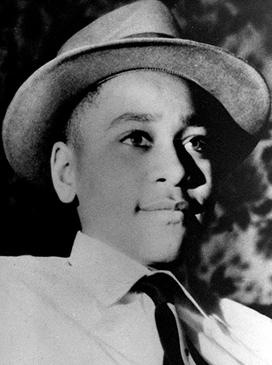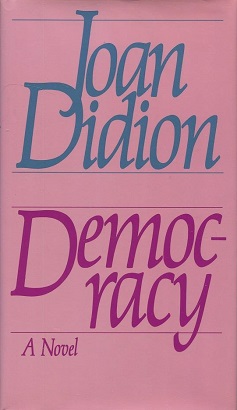Betty Jean O'Hara was a famed prostitute in Honolulu's "vice district" during World War II.

The Blond Ambition World Tour was the third concert tour by American singer Madonna. It supported her fourth studio album Like a Prayer (1989), and the soundtrack album to the 1990 film Dick Tracy, I'm Breathless. The 57-show tour began on April 13, 1990, at the Chiba Marine Stadium in Chiba, Japan, and concluded on August 5 at the Stade Charles-Ehrmann in Nice, France. Additionally, it marked Madonna's first concerts in Sweden and Spain. Originally planned as the Like a Prayer World Tour, it was supposed to be sponsored by soft drink manufacturer Pepsi. However, the company cancelled the contract following the controversy surrounding the music video of "Like a Prayer".

Emmett Louis Till was an African American teenager who was abducted and lynched in Mississippi in 1955 after being accused of offending a white woman, Carolyn Bryant, in her family's grocery store. The brutality of his murder and the acquittal of his killers drew attention to the long history of violent persecution of African Americans in the United States. Till posthumously became an icon of the civil rights movement.

Ernestine Jane Geraldine Russell was an American actress and model. She was one of Hollywood's leading sex symbols in the 1940s and 1950s. She starred in more than 20 films.

Richard Egan was an American actor. After beginning his career in 1949, he subsequently won a Golden Globe Award for his performances in the films The Glory Brigade (1953) and The Kid from Left Field (1953). He went on to star in many films such as Underwater! (1955), Seven Cities of Gold (1955), The Revolt of Mamie Stover (1956), Love Me Tender (1956), Tension at Table Rock (1956), A Summer Place (1959), Esther and the King (1960) and The 300 Spartans (1962).
William Bradford Huie was an American writer, investigative reporter, editor, national lecturer, and television host. His credits include 21 books that sold over 30 million copies worldwide. In addition to writing 14 bestsellers, he wrote hundreds of articles that appeared in all of the major magazines and newspapers of the day.

Hallelujah is a 1929 American pre-Code Metro-Goldwyn-Mayer musical directed by King Vidor, and starring Daniel L. Haynes and Nina Mae McKinney.

Prostitution is illegal in the vast majority of the United States as a result of state laws rather than federal laws. It is, however, legal in some rural counties within the state of Nevada. Additionally, it is decriminalized to sell sex in the state of Maine, but illegal to buy sex. Prostitution nevertheless occurs elsewhere in the country.
Mamie or Maimie is a feminine given name and nickname which may refer to:

Democracy is a 1984 novel by the American author Joan Didion. Set in Hawaii and Southeast Asia at the end of the Vietnam War, the book tells the story of Inez Victor, wife of U.S. Senator and one-time presidential hopeful Harry Victor, and her enduring romance with Jack Lovett, a CIA agent/war profiteer whom Inez first met as a teenager living in Hawaii.

Jonathan Yardley is an American author and former book critic at The Washington Post from 1981 to December 2014, and held the same post from 1978 to 1981 at the Washington Star. In 1981, he received the Pulitzer Prize for Criticism.

Ward Swift Just was an American writer. He was a war correspondent and the author of 19 novels and numerous short stories.

The Revolt of Mamie Stover is a 1956 American DeLuxe Color romantic drama film directed by Raoul Walsh and produced by Buddy Adler from a screenplay by Sydney Boehm, based on the 1951 novel of the same name by William Bradford Huie. The picture stars Jane Russell and Richard Egan, with Joan Leslie, Agnes Moorehead, and Michael Pate, and was filmed in CinemaScope. The music was by Hugo Friedhofer and the cinematography by Leo Tover, with costume design by Travilla.
Prostitution was legal in Israel until December 2018, but organised prostitution in the form of brothels and pimping was prohibited. Legislation passed in the Knesset on 31 December 2018 that criminalises the "clients" of prostitutes came into force in May 2020, and was regulated since July 2020 under the Israeli Abolition of Prostitution Consumption Law, where fines will be cast for consumption of prostitution services from an adult. This legislation makes Israel the tenth country to adopt the "Nordic model". The Ministry of Social Affairs and Social Services estimates there to be 14,000 prostitutes in the country.

On March 10, 2008, The New York Times reported that Eliot Spitzer, Governor of New York, had patronized a prostitution ring run by an escort agency known as Emperors Club VIP. During the course of an investigation into the escort agency, the federal government became aware of Spitzer's involvement with prostitutes due to a wiretap. Following the public disclosure of his actions, Spitzer resigned as Governor effective March 17, 2008.
Ashley Rae Maika DiPietro, better known by the stage name Ashley Alexandra Dupré, is a former call girl. She gained fame in 2008 for her role as "Kristen" in the Eliot Spitzer prostitution scandal, which led to the resignation of Eliot Spitzer as governor of New York.
Jennet Conant is an American non-fiction author and journalist. She has written five books about World War II, three of which have appeared on the New York Times Best Seller list: Tuxedo Park: A Wall Street Tycoon and the Secret Palace of Science that Changed the Course of WWII, 109 East Palace: Robert Oppenheimer and the Secret City of Los Alamos, The Irregulars: Roald Dahl and the British Spy Ring in Wartime Washington, and A Covert Affair: Julia Child and Paul Child in the OSS.
Prostitution in Hawaii is illegal but common. There are about 150 brothels in Oahu alone.

The family of Dwight D. Eisenhower, the 34th president of the United States, and his wife, Mamie, consists predominantly of German and Pennsylvania Dutch background. They are related by marriage to the family of Richard Nixon, who was Eisenhower's vice-president, and was later the 37th president of the United States.












